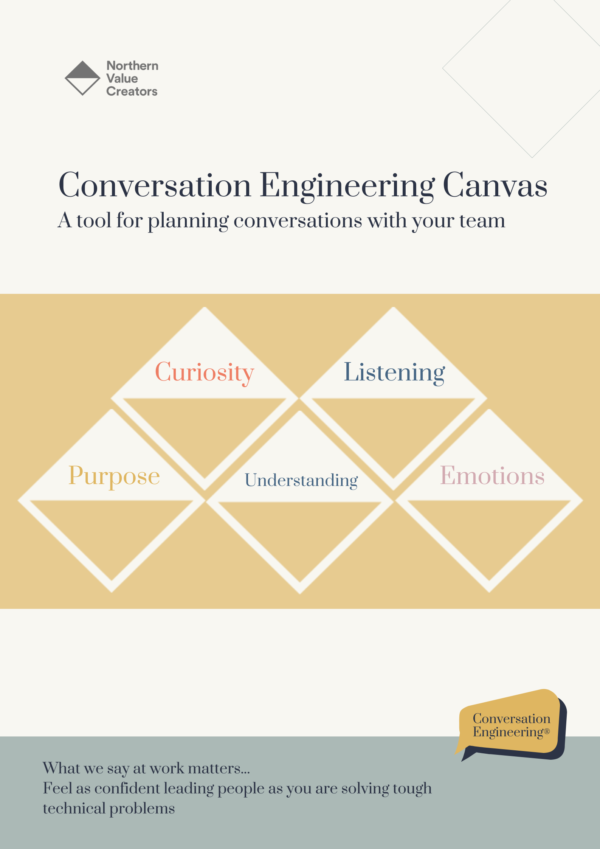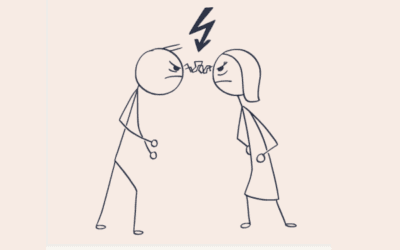Your first step to better conversations
What conversations do you want to have? Ones that get your team working at their best? The ones that get you noticed as a leader going places? Our hope is that we have created something that will help leaders of technical and professional services teams improve the conversations they have with their team. Our aim is that by using this tool you’ll have more confidence in successfully having conversations with their team, no matter how tricky the topic might be. The conversation canvas is not designed to tell you what to say, it’s designed to steer and stimulate your own thinking and help you properly prepare for conversations with your team.

Related Resources

Great conversations in 15 minutes
These questions have been designed to help you create more positive impact at work. When reflected on these five critical areas will help you steer clear of misunderstandings. Grab a pen, make a brew and take 15 minutes to think about a conversation you would like to have at work and have been putting off. It’s astonishing what a little preparation can achieve. Let our worksheet be your secret weapon for unlocking impactful conversations.

Recognise stress in your meetings
If we can learn the signs of stress we will become more aware of its impact on our conversations, we are able to respond better. If we brush stress under the carpet, or dismiss it as part of the job we risk ignoring its neurological impact. This guide offers practical advice to help recognise the ways stress can show up in your meetings and conversations – it’s not always obvious and the signs can be subtle. Learn to recognise the signs of stress in yourself and others, as this will make people’s behaviour easier to understand.

Disagreeing well
We like consensus in our teams. When people agree it feels good, all being on the same page is a comfy place to be – but is it too comfy? When we hurry towards consensus and rush to find an agreed solution are we missing something? Avoiding disagreement may quash new ideas, make speaking up difficult and lead to group think. Learn a key skill of a high performing team; disagreeing well.

